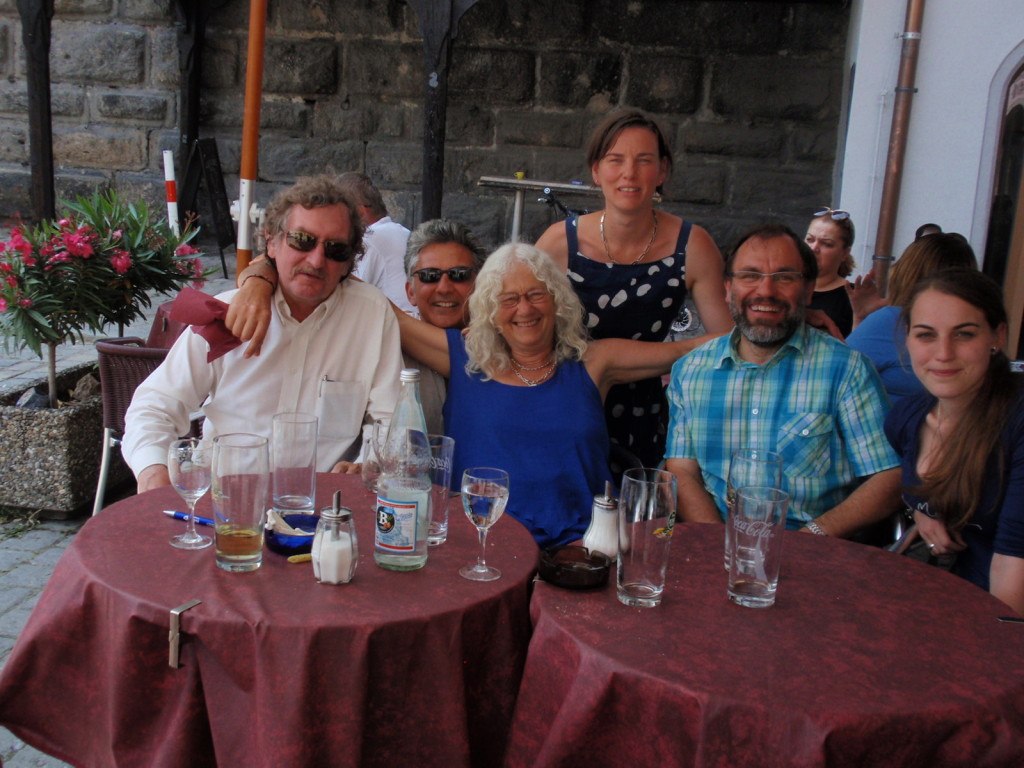Podcast: Play in new window | Download
Subscribe: Apple Podcasts | RSS
Dr. Alison Fleming is a Professor Emerita in the Department of Psychology at the University of Toronto, Mississauga. She was also a founding member of the Fraser Mustard Institute for Human Development at the University of Toronto. Alison received her PhD from the Institute of Animal Behavior at Rutgers University and completed a postdoctoral fellowship at the University of California, Berkeley. Alison has received many awards and honors during her career, including election as a Fellow of the Royal Society of Canada, the Daniel Lehrman Lifetime Achievement from the Society of Behavioral Neuroendocrinology, the Excellence in Teaching Award from the University of Toronto, Mississauga, and the University of Toronto Faculty Research Excellence Award. She was appointed as Distinguished Professor and Canada Research Chair at the University of Toronto. Alison is with us today to tell us all about her journey through life and science.
People Behind the Science Podcast Show Notes
Life Outside of Science
Alison has a wonderful life both inside and outside of science. When she’s not working, she likes to walk, read, go to movies, paint, and chat on the phone with her three kids.
The Scientific Side
Her research is centered around the neurobiology of mothering in animals. She also teaches large classes, seminars, lab courses, and mentors students.
A Dose of Motivation
Alison always keeps Nicolaas Tinbergen’s concent of four different levels for answering questions related to causality in her mind as she goes through her research. These levels are function, evolution, causation, and development. They are all accurate, but none of them individually will give you the complete answer.
What Got You Hooked on Science?
As a kid, Alison always loved animals and always had pets. She didn’t start seriously pursuing science until she took a psychology course while she was in college at Columbia. There she did an undergraduate project on mothering with rats, and this was her introduction to the field. She just fell in love with the methodology, the process, and the questions.
The Low Points: Failures and Challenges
Alison shared with us a dark time in her lab where she discovered that someone was falsifying data. Many people were working on this project and a lot of work had gone into it. They were actually just about to send the manuscript out for publication, but once this was revealed, they had to completely scrap the project because she couldn’t trust the findings they were reporting.
A Shining Success!
Her previous students threw her a wonderful retirement party (students all the way back to the 70s came!). Several of them gave talks, and it was a really moving experience and meant a lot to her to see all these successful people that she had trained.
Book Recommendations
Mother Nature: Maternal Instincts and How They Shape the Human Species by Sarah Hardy, Mothers and Others: The Evolutionary Origins of Mutual Unerstanding by Sarah Hrdy
Most Treasured Travel
One of her favorite trips was to a small conference in Ittingen, Switzerland where she ended up met her husband. The location was picturesque in a monastery in the hills. It was a conference and workshop on parenting, and they spent days discussing the current issues in the field, taking walks through the hills, and listening to music in the monastery.
Quirky Traditions and Funny Memories
In Alison’s lab, students would present their work at weekly meetings. The students were always really nervous, and she recalled one student who was particularly apprehensive and especially tall who fell into a surprisingly graceful faint in during her presentation. The student was okay and has gone on to be successful in science, but I’m sure will never forget her first presentation!
Advice For Us All
As a woman scientist, it was tricky balancing everything, but you can do it. You have to understand what you want and need in your life and make your decisions accordingly. Never feel guilty about your decisions or how you choose to spend your time.
Guest Bio
Alison studied the olfactory and experiential regulation of mothering in rodents during her PhD work. During her postdoctoral fellowship at the University of California, Berkeley, she studied circadian rhythms in mothering in rabbits and then she began her studies of mothering in humans at San Francisco State. Alison has been on faculty at University of Toronto since 1975 and a Full Professor since 1986. Over the past 40 years Professor Fleming and her students have focused their research efforts on understanding what makes a mother want to mother and what influences how she does so. This work has been taken to multiple levels of explanation in both rodent and humans, ranging from the role of hormones, odors and other sensory cues from the young, past and present history and experiences, the brain, and the underlying genetic and neurochemical mechanisms. She has three daughters and two grand daughters.

Its great to listening an interesting, smart, passionate and kind person like Dr. Alison Fleming. I worked as postdoc with her years ago in her lab and let me tell other people that was my best academic experience. I consider Alison as my Academic mother. Since that time, my academic and own life changed. THanks a lot Alison to be like you are, if many people were like you, this world could be better. Angel I. Melo
Its great to listening an interesting, smart, passionate and kind person
like Dr. Alison Fleming. I worked as postdoc years ago in her lab, and let me
tell other people that was my best academic experience. I consider Alison as my
Academic mother. Since that time, my academic and own life changed. Thanks a
lot Alison to be like you are, if many people were like you, this world could
be better. Angel I. Melo